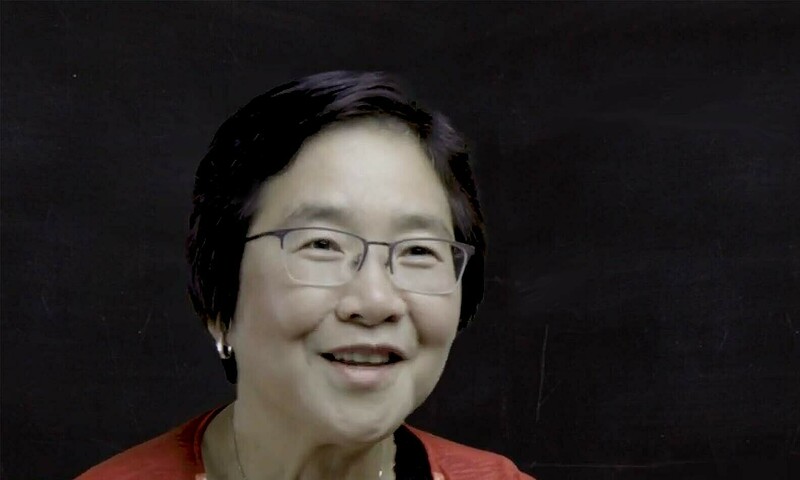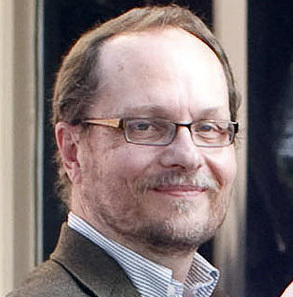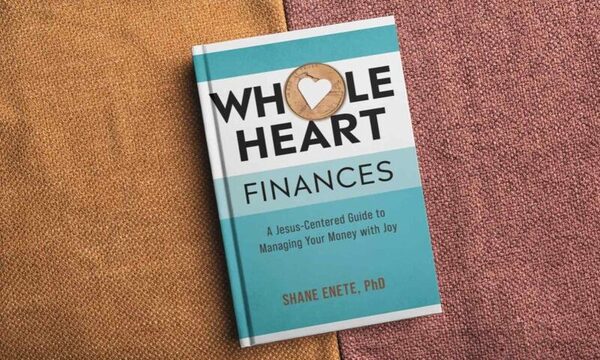We often hear the word bi-vocational applied to pastors of small churches who donât have the money for a full time position. But Elaine Kung believes that we are all bi-vocational.
âWe have a role in society, usually in a company where we can contribute. But we also have our role in God's kingdom where we can minister and serve God,â she told an online audience during Crowellâs October âDistinguished Speakersâ event.
Kung founded in 1996 and is passionate about the faith and work movement. She is an experienced mentor, including serving as a Crowell MBA mentor. She speaks frequently both in the United States and internationally on faith and work, on leadership, on career development and on various other topics. She has received a number of awards and recognitions, serves on twelve different boards and is also a church elder.
Kung has a B.S. in electrical engineering and an M.S. in engineering from Cornell, as well as an M.S. in electrical engineering from Princeton, and has done executive education at Columbia, Cornell and the Wharton School of the University of Pennsylvania. She recently retired after 33 years with AT&T, where she led technology, product management and marketing.
But Kung was honest with her audience about how challenging those 33 years were for her.
âIn my 33 years (at AT&T),â she said, âI made many, many mistakes, but it was through these many mistakes that I learned how to be a better leader, how to really practice the spiritual disciplines at work and to now develop workplace-discipleship programs to help others.â
Kung was not shy in describing how long and difficult the path was in becoming the leader she desired to become.
âMy first several years (there) were very miserable,â she continued. âI was a Christian, but I struggled. I made mistakes, I was arrogant, I was selfish, I was ignorant and demanding. I felt that if I can do it, everyone else can do it. I was not considerate, not thoughtful, and nothing like a servant leader. I learned what other people said about me: Elaine is going to crash and burn. I was such a perfectionist and so focused on results that I put projects before people. Thatâs not good. But God continued to shape me and mold me and in my final years I learned how to be a servant leader and how to build trustworthy relationships.â
For Kung, faith and work is not just a ministry, itâs a whole different way of looking at work, which is the first step in a progression.
âWe are to take Jesus to work and work is meant to be sacred,â Kung said. âIf you take Jesus to work, then work is not secular. It could be secular, if you don't take Jesus. Even your Christian college education can be secular if you do not involve Jesus and the Holy Spirit. So when you involve Jesus in what you do, you become sacred, too.â
The second step of the progression: Once you look at work differently, you will begin to do your work differently.
âThereâs nothing Christlike about doing mediocre work at your job and then saying, âOh, but I've saved my best time and energy to serve at church.â Of course it's good to serve in church with effort and energy. But at the same time, we need to serve with excellence at work, as if weâre working for God. He is our real CEO. All our work should be for God, inside and outside the church.â
The next step of Kungâs progression: Now that you are doing your work differently, you may be able to change your workplace for the better.
âAnd if God is our CEO, then we can minister at our jobs with grace and love, which is not easy because people can give other people a hard time,â she said. âChristians must learn how to love the unlovable and forgive the unforgivable, instead of getting mad and getting even. If you ask people what they think about the âoffice cultureâ at their job, many would respond negatively. But I believe we can have a positive influence and help create a positive office culture if we keep in mind Who it is that we work for. If we have the character to live with integrity, that may influence others to do the right thing.â
The pressures of being a Christian in the workplace are very familiar to Kung, but she encouraged students not to hide. This is the last step of Kungâs progression: Doing your work differently may cause your colleagues to begin looking at you differently.
âSome of us are afraid,â Kung said, âbut others have a different reason: they don't want to shame the name of Jesus. âI don't want to let people know I'm a Christian because I make mistakes and lose my temper at times. I better not bring shame to Jesus. I'll just be a secret believer.â I donât think thatâs what God wants. We need to have the courage to apologize when we are wrong. And that humility, that transparency, may well earn your coworkersâ respect, and they may ask, âWhy do you act differently than other people during all the pressure around here? Why are you so caring and calm?â If you have been sharing your faith in your actions and in your attitude, then perhaps the door is now open for you to share it in your words.â
The Crowell Distinguished Speaker Series brings a selection of accomplished business leaders to campus to share their varied professional and personal insights and provides the opportunity to network with fellow attendees including alumni, MBA mentors, faculty, and current and prospective MBA students. The event is always free and open to all. Future events can be found on the Crowell events calendar.
To learn more about and apply to Crowellâs business program, visit the website.
 51ÂÜŔň
51ÂÜŔň

.jpg)
.jpg)

